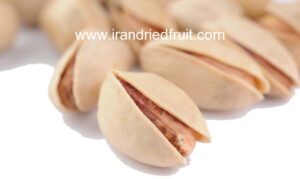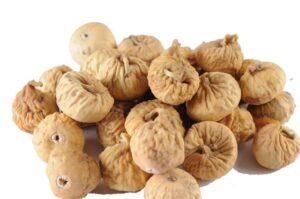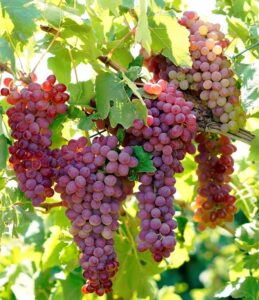Updated 2024
Apricot page
Soil Requirement
Apricots grown on apricot rootstock require well-drained soils. In soils where drainage is restricted and ponding occurs after irrigation or rainfall (cherry) plum stocks are needed. apricot information
Apricots seem well adapted to soils of around pH 6–8. The species is fairly tolerant of alkaline conditions but is very sensitive to high salt levels in the soil. apricot info is as below.
Apricot harvest
There are more than 40 varieties of apricots almost all of which grow in warm climates. Some apricot hybrids and interspecies hybrids such as peachcots, plumcots, and cherrycots have been adapted to cooler regions, but most apricots grow in the near Mediterranean latitudes that stretch from Italy through Turkey and Iran to the southern Himalayas to southern China, Japan, Australia, and on to California. The apricot tree can grow to more than 30 feet (9 m) tall. Its flowers and fruit develop directly from the tree’s trunk and branches.
The apricot is a stone fruit that requires a cold winter for rest and a warm summer to ripen the fruit. Most apricots have velvety pale orange skin and dry flesh. As the apricot ripens its edible downy skin becomes smooth.
A ripe apricot is sweet, fragrant, and delicately flavored with very little juice. Apricot varieties can be divided into early harvest, mid-season harvest, and late harvest.
The ‘Blenheim’ is an early harvest apricot beginning in spring and the ‘Moorpark’ is a mid-season harvest fruit ready for picking in late spring and early summer. Late-harvest apricots are ready after the middle of summer.

health benefits of raisins and other useful info is provided here.
In culture
The Chinese associate the apricot with education and medicine. For instance, the classical word 杏壇 (literally:
‘apricot altar’) which means “educational circle”, is still widely used in written language. Chuang Tzu, a Chinese philosopher in the 4th century BCE, told a story that Confucius taught his students in a forum surrounded by the wood of apricot trees.
The association with medicine in turn comes from the common use of apricot kernels as a component in traditional Chinese medicine, and from the story of Dong Feng (董奉), a physician during the Three Kingdoms period, who required no payment from his patients except that they plant apricot trees in his orchard on recovering from their illnesses, resulting in a large grove of apricot trees and a steady supply of medicinal ingredients.
The term “Expert of the Apricot Grove” (杏林高手) is still used as a poetic reference to physicians. The fact that the apricot season is very short has given rise to the very common Egyptian Arabic and Palestinian Arabic expression “filmishmish” (“in apricot [season]”) or “bukra filmishmish” (“tomorrow in apricot [season]”), generally uttered as a riposte to an unlikely prediction, or as a rash promise to fulfill a request. Among United States Marine Corps tank-driving Marines, apricots are taboo, by superstition.
Marine Corps tankers will not eat apricots, allow apricots onto their vehicles, and often will not even say the word “apricot”. This superstition stems from Marine Sherman tank breakdowns purportedly happening in the presence of cans of apricots.
The Turkish idiom “bundan iyisi Şam’da kayısı” (literally, the only thing better than this is an apricot in Damascus) means “it doesn’t get any better than this” and used when something is the very best it can be; like a delicious apricot from Damascus.
Nutritional Benefits
The apricot has highly health-building virtues. Fresh fruit is rich in easily digestible natural sugars, vitamins A and C, riboflavin (B2) and niacin (B3). It is also an excellent source of minerals like calcium, phosphorus, iron, and traces of sodium, Sulphur, manganese, cobalt, and bromine.
Apricots are often dried, cooked into pastry, or eaten as jam. The calories in apricots multiply many times over when dried, but the amount of calcium, phosphorus and iron also increased significantly.
The beta-carotene and lycopene in this golden fruit help protect the LDL cholesterol from oxidation, which in turn helps prevent heart disease. The apricot seed is a nut that is rich in protein and fat like any other nuts.
It also has an extremely high content of vitamin B17 which is known as Laetrile. Daily consumption of this seed is claimed to be highly effective in preventing cancer. Cancer patients on Laetrile Cancer Therapy have reported that their tumors have shrunk with high doses of vitamin B17.
Health Benefits
The fruit, kernel (inner softer part of the seed), oil, and flowers of the apricot have always been used in medicine and medical treatment from ancient days. The kernel yields an oil that is similar to that of the almond and is widely used for their sedative, anti-spasmodic relief to strained muscles. It is also useful for healing of wounds, expelling worms, and as a general health tonic.
Anemia:
The high content of iron in apricot makes it an excellent food for anemia sufferers.
The small but essential amount of copper in the fruit makes the iron available to the body. Liberal consumption of apricot can increase the production of hemoglobin in the body. This is ideal for women after their menstrual cycle, especially those with heavy flow. Constipation: The cellulose and pectin content in apricot is a gentle laxative and are effective in the treatment of constipation.
The insoluble cellulose acts as a roughage which helps the bowel movement. The pectin absorbs and retains water, thereby increasing bulk to stools, aiding in smooth bowel movement.
Digestion:
Take an apricot before a meal to aid digestion, as it has an alkaline reaction in the digestive system. Eyes/Vision: A high amount of vitamin A (especially when dried) is essential to maintain or improve eyesight. Insufficiency of this vitamin can cause night blindness and impair sight. Fever: Blend some honey and apricots with some mineral water and drink to cool down fevers.
It quenches the thirst and effectively eliminates the waste products from the body. Skin Problem: Juice fresh apricot leaves and apply on scabies, eczema, sunburn, or skin itchiness, for that cool, soothing feeling.
Apricot disease
The apricot is, as a rule, a very healthy tree. However, there are a few diseases which affect it to some extent. These troubles are practically identical with those of the peach and other stone fruits. The more important diseases and injuries are Brown Rot, Frost Injury, scab, Coryneum Fruit Spot, rust, and Black Spot. During recent years most attention has been given to the last three. Doubtless, Brown Rot is the best-known disease of the apricot.



